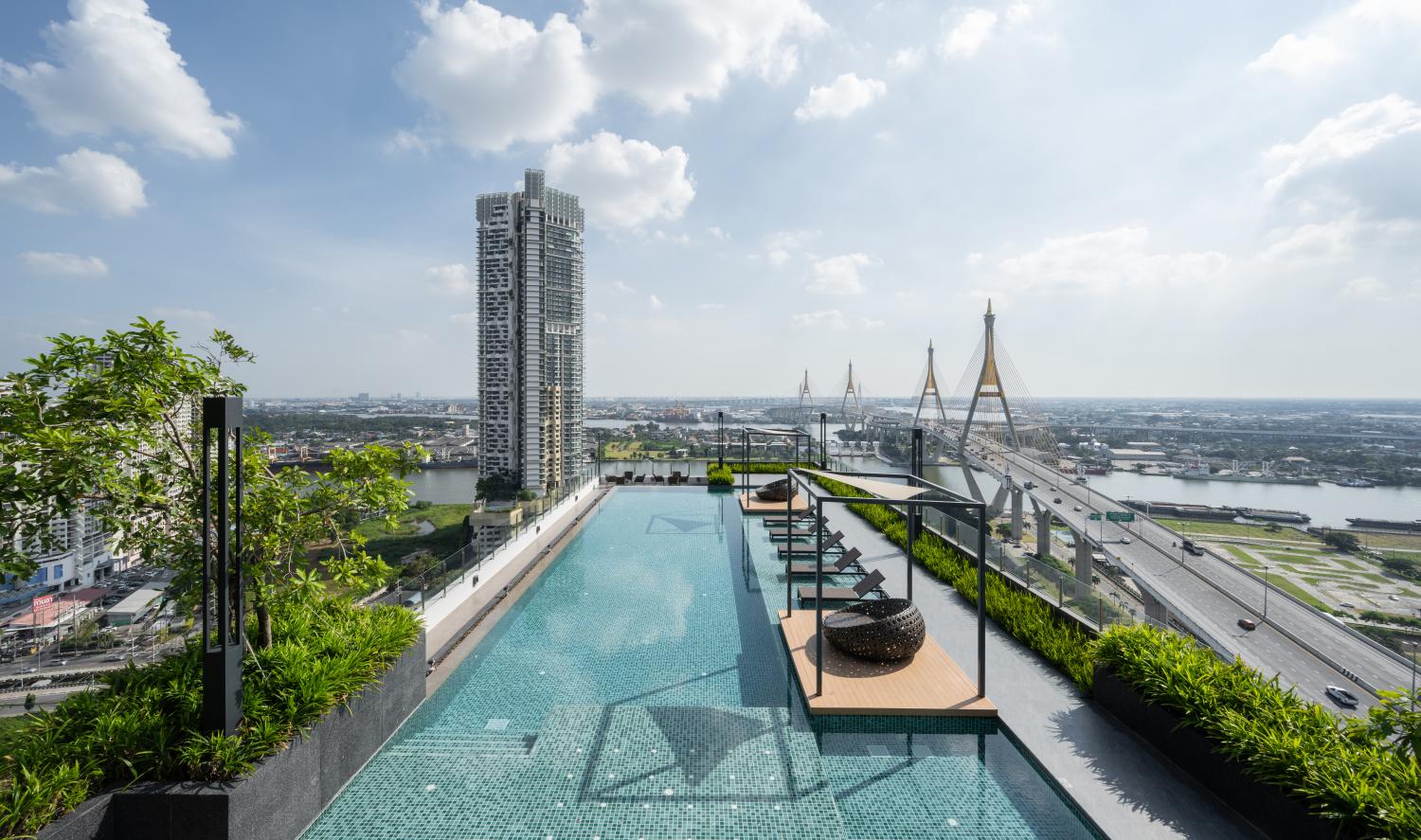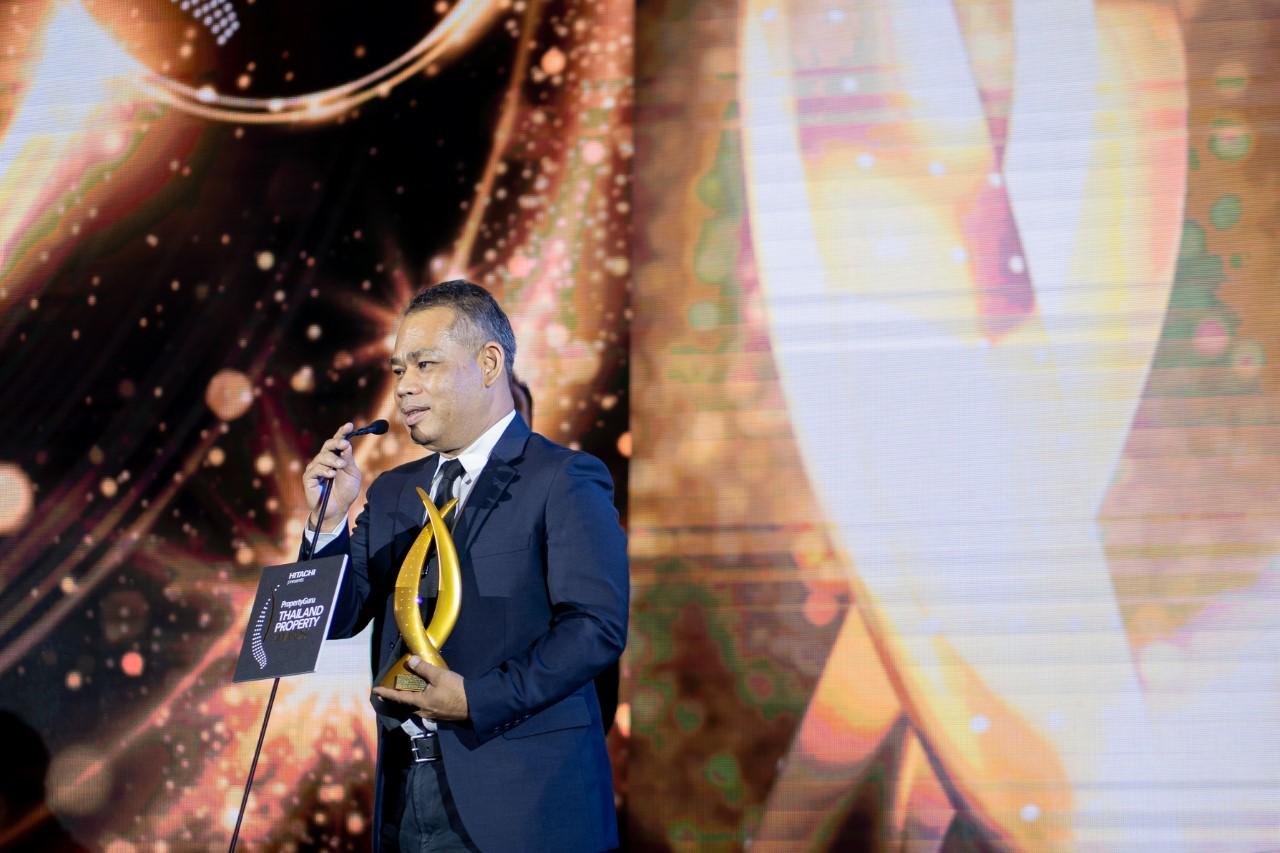
Sustainability is a new priority for residential property projects in Asia, especially at time the world is facing threats from climate change and diseases.
The building and construction sector is among the planet's top polluters, being responsible for 39% of greenhouse gases emitted globally in 2017, according to research by UN Environment and the International Energy Agency.
Sustainability, in the view of property developers, means facilities that are friendly to the environment and ensure the well-being of residents, while being responsible to local communities.
"When we talk about sustainability in residential projects, it means we develop an energy-saving approach together with areas that are friendly to the environment," says Suphin Mechuchep, managing director of the real estate services firm JLL Thailand.
"All in all, we intend to develop residential projects that create well-being for residents and homeowners. This is the way property firms must act at a time when the world is facing the impacts of climate change and the coronavirus outbreak."
Research by JLL found that most developers in Thailand have a strong interest in developing residential projects using a sustainable concept that encompasses energy saving, green architecture and non-toxic construction materials to deliver high-quality projects.
Among the local developers setting a green example is LPN Development Plc, which was voted Best Sustainable Developer (Asia) in the PropertyGuru Asia Property Awards 2020, beating 87 developers from 14 countries in the region, said Mrs Suphin, who was chief judge of the competition.
"Sustainability has been our business approach for the past three decades since we established the company," LPN managing director Opas Sripayak told Asia Focus.
"Our founding business principle is to strike a balance between profit and responsibility in real-estate development operations, in order to minimise impacts on society and the environment."
The LPN approach is concrete and measurable, as set out in its 3-6-8-10 Business Platform. The 3 signifies the 3Ps of Profit, People and Planet for sustainable development. LPN has 6 Green Strategies that respond to 8 groups of stakeholders -- shareholders, customers, staff, business partners, neighbouring communities, residents, construction workers and the environment -- through 10 core operational processes.

Opas Sripayak, CEO and managing director, LPN Development SUPPLIED
Many people assume that sustainable construction practices have higher upfront costs when compared with traditional methods, but this is offset by reductions in other costs over time, Mr Opas explained.
The holistic approach employed by LPN has reduced overall costs through economies of scale and speed of construction. The Green Construction standard also leads to more affordable and efficient green development.
The approach focuses on both project planning and resource management throughout the life cycle of the building, yet the value created is measured in more than just money, with social contributions also part of the picture.
In sustainable construction, modular systems and BIM (building information modelling) technology are used to eliminate unanticipated costs and produce a smoother and faster construction process. As a result, construction time has been shortened from 2-3 years per project to just 18 months -- about half the market average.
"Speeding up the construction process reduces environmental exposure and its impact such as dust, noise and waste. This is the LPN Way of process-based innovative construction and sustainable practice," Mr Opas said.
"Being able to shorten the construction cycle not only benefits the environment, but it also gives us better control of costs, which in return makes projects affordable for customers.
"Our sustainable residential development over three decades has succeeded in providing sustainable and quality living at affordable prices for more than 180,000 families in Bangkok, its suburbs and other provinces. This is because we want to see all Thai people being able to have their own quality residence at an affordable price."
Mr Opas believes that sustainable development is no mere trend but an essential way to serve society. "Sustainability is an important concept in relation to environmental integrity for affordable housing," he said. "Currently, investors and homeowners in the affordable segment are focusing on wellness lifestyles and wellness communities, ensuring the long-term availability of safe, decent and affordable housing that supports the health of the occupants."
Accordingly, LPN's mission is to develop sustainable residential projects at affordable prices for to ensure a "liveable community for all", said Mr Opas.
The sustainability philosophy has also led to sustainable business growth -- from 3 billion baht in revenue in 2006 to 16 billion baht in 2015. Even in 2020, the company managed to maintain growth despite the economic downturn brought by the pandemic.
"We have been able to keep all our staff in jobs and have continued to record net profit and share other benefits with all our stakeholders, including customers, shareholders, business partners and staff, although we had to revise our total revenue and net profit due to the economic downturn caused by the pandemic," said Mr Opas. "I attribute this to our resilience, a character reflected in a sustainable philosophy business strategy."
In the first nine months of 2020, LPN posted total revenue of 4.78 billion baht with a net profit of 472.94 million, on track to achieve its annual revenue target of 7.6 billion baht, Mr Opas pointed out.
"When we won the Best Sustainable Developer (Asia) award, we saw this as a way to promote our business model as a practice and guideline to other property developers in the industry, who may wish to join us in working together in order to create better and more sustainable development in Thailand and our region."